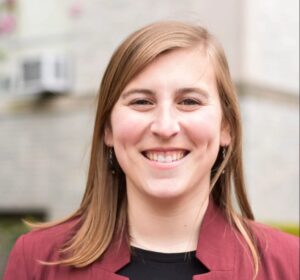Congratulations to the below mentioned on receiving the Public Policy Lab Fellowship!


Bridge to Opportunity: A Fidelity Assessment and Preliminary Program Evaluation
In partnership with Building Futures (BF) and the Rhode Island Department of Corrections (RIDOC), Dr. Chelsea Farrell and Dr. Natalie Pifer will be evaluating BF’s Bridge to Opportunity program. Bridge to Opportunity is funded through the Bureau of Justice Assistance Second Chance Act and offers a construction readiness program in prison that connects participants to Building Futures’ community-based pre-apprenticeship program upon release. Broadly, the goal of this program is to reduce recidivism and aid in the reentry process post-release by offering a career pathway into the construction field through continued involvement with BF to obtain the necessary certifications and experiences to enter the high demand and high wage construction industry. Dr. Farrell and Pifer will be joined by two undergraduate research fellows funded by SSIREP’s Public Policy Lab in the Fall of 2023 through Spring 2024. These student fellows will have an opportunity to gain skills in both qualitative and quantitative data management and analysis, along with a deeper understanding of program evaluation and program fidelity assessment.

Mapping Diverse Services from Alternative Urban Food Provisioning Networks and Identifying Opportunities for Policy Support
Immigrant communities and communities of color are more likely to have limited food access and to experience food insecurity. However, they’re also more likely to engage in self-provisioning through growing, fishing, and foraging for food for cultural reasons or to address food system gaps. These self-provisioning activities may be part of larger-scale alternative urban food provisioning networks (AUFPNs) held together by social relations and resource flows, e.g., of food, knowledge, and inputs. The immediate goal of this project is to map the AUFPNs of focal communities in metropolitan Providence and to identify factors contributing to or limiting the success of these networks, with the ultimate goal of developing policy recommendations for encouraging and sustaining AUFPNs.
